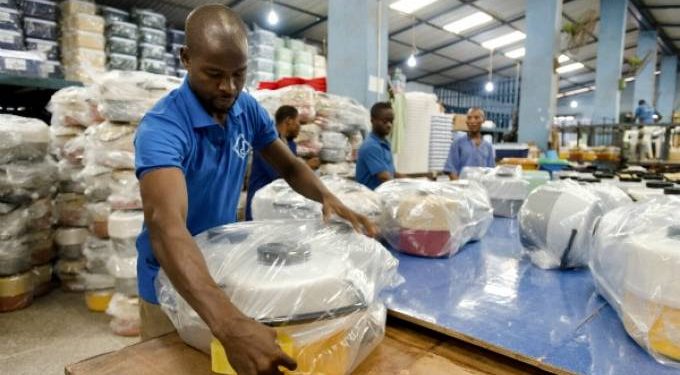Ghanaian SMEs are not ready for AfCFTA – Report says
Ghanaian Smal and Medium-scaled Enterprises (SMEs) according to CUTS Ghana, are not ready to trade under the African Continental Free Trade Agreement (AfCFTA).
The assertion by the Group in a report titled Assessment of Ghanaian Private Sector Readiness for AfCFTA Implementation, is based on an analysis of the readiness of SMEs on a five-point Likert scale where 1- 2= Low (Not Ready), 3= medium (Somehow Ready) and 4-5= High.
Ghanaian SMEs per the analysis scored within the 1-2 mark indicating the sector is not ready to trade under the continental-wide trade pact.
From the analysis, however, CUTS Ghana notes that large firms are fairly ready for the AfCFTA implementation since their average overall score falls within the moderate mark of 3.
“This is particularly true because they [large firms] show a strong ability to innovate and a moderate ability to export. Additionally, they have a moderate productive capacity as well as the ability to compete. Contrary, their knowledge about the AfCFTA is limited,” stated the report.
According to CUTS Ghana, SMEs require lots of preparation and investment to be able to take full advantage of the AfCFTA implementation.
“Although, they [SMEs] have a fair ability to innovate, their knowledge and understanding about AfCFTA, productive capabilities, ability to compete, and exportability are limited. Efforts must therefore be given to retooling the capacity of the SMEs to enhance their readiness,” added CUTS Ghana.
The Group is of the view that, although the private sector readiness for the AfCFTA implementation is not high, they will be more prepared if the following constraints which are common to all Ghanaian firms are addressed:
- Limited Knowledge about the AfCFTA
- High cost of production
- Poor packaging and finishing
- High cost of credit
- Limited motivation/commitment to export particularly for SMEs
- Inadequate skilled labour
- Bottlenecks in administrative and regulatory procedures
CUTS Ghana, in view of the low readiness level of Ghanaian businesses for the implementation of the AfCFTA made the following recommendations:
- Firms particularly SMEs need to have a clear-cut (export strategy) plan to drive their export sales
- Firms should focus more on value addition such as improving upon packaging and finishing by learning from international best practices. This will enable them, to some extent, survive the emerging competition
- Firms need to acquire proper knowledge on financial management (e.g. proper bookkeeping and cash management) as this will ensure their credit reliability to attract loans from banks and other financial institutions. Firms should also consider diversity in their financing including non-traditional sources of funding such as crowdfunding, merchant cash advance (MCA), peer-to- peer lending (P2P) among others, to be better suited to cover production cost
- Firms should be committed to researching ways to improve upon current or existing products so as to have an upper hand on similar products from other African countries. They should also consider undertaking radical innovation to come up with new products in order to have a competitive edge over their African counterparts
- Firms should consider allocating staff members specifically to understanding the AfCFTA including how to navigate this new trade agreement. This could be done by appointing AfCFTA desk officers









